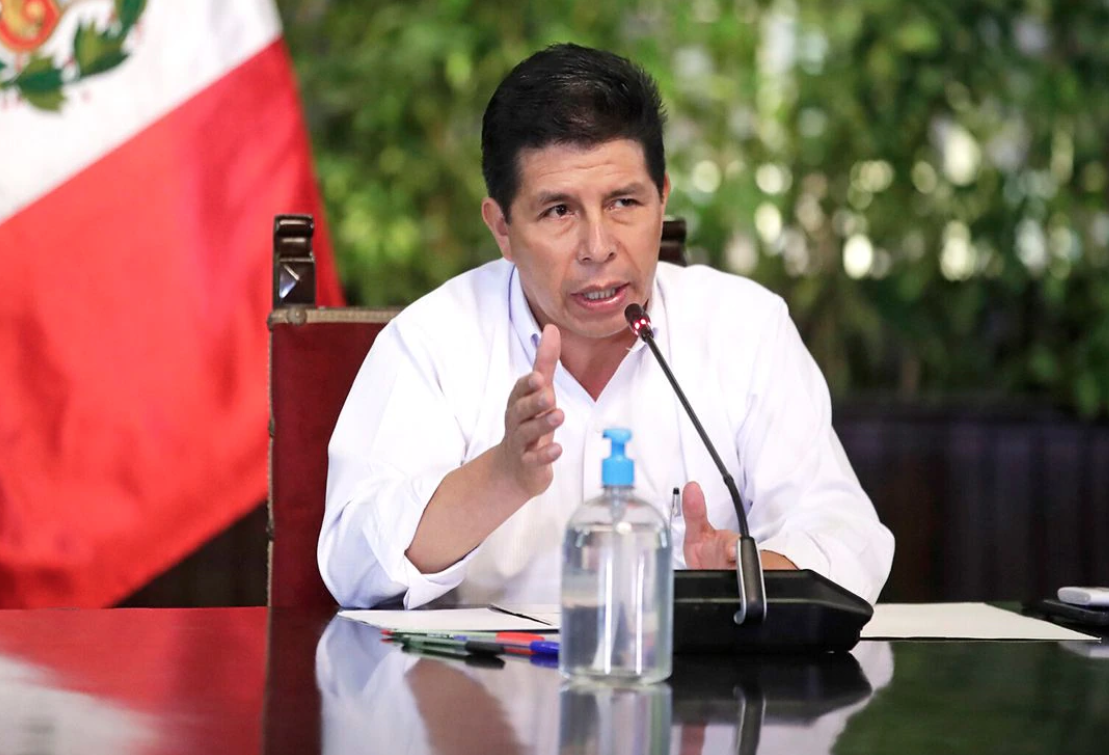President Pedro Castillo escaped impeachment by the Congress of the Republic of Peru through the inter-institutional accountability system that incorporates political control mechanisms of the parliamentary system. The difference with Presidentialism is that this system is executed through impeachment, something that resembles a judicial process where the rites and procedures are similar and are also circumscribed to clearly typified crimes that the president is presumed to have committed during his term.
In Peru, the impeachment process is summary and has more of a political component than a judicial one. In this process, the adversaries – according to the rules – need to reach 87 out of 130 votes and base their initiative according to one of the figures established in the Constitution as “moral incapacity”. This is a subjective legal figure, and certainly ambiguous, which has become a secondary element in the current vacancy petitions since the “moral incapacity” can be stretched conceptually to the interest of whoever promotes it.
At this juncture, the opposition barely reached 55 out of the 87 votes needed, a quite predictable result, which constitutes a defeat for the center-right opposition dragged by the daily radicalization of a minority extreme right. In any case, the instability deliberately stirred up by an opposition minority has led the government to appoint four ministerial cabinets in six months, as well as to suffer the veto by Congress of two ministers -one recently- and the voluntary resignation of others.
What does this defeat mean?
The continuous deterioration of democracy. The institutional design of the Executive-Legislative relations induces a series of dynamics similar to the prisoner’s dilemma. A typical dilemma of game theory in which establishes that in a hypothetical situation, each player (prisoner) will do, independently and without caring about the decision of the other, what is necessary to increase his advantage or benefit.
In theory, the best solution would be to cooperate, however, distrust between players usually leads to betrayal. As the expert Guillermo O’Donnell mentions in his famous article on “Delegative Democracy”, the prisoner’s dilemma would be the exact opposite of the conditions that promote solid democratic institutions.
From the point of view of the juncture, the government has been better articulating and has demonstrated a clear ability to create a coalition of independent parliamentarians that go beyond the bench that brought it to the Presidency. It seems that Castillo and his allies have learned the formula to avoid the fall of the government. And the most radical wing of the party has moderated and has understood that power is dispersed and distributed heterogeneously in different forces, with different profiles, speeches, and interests. In order to obtain some advantage, one condition is to keep its partner as president.
The independent parliamentarians who support the government have made their political calculations. It is better to have a weak government that they can use than to vacate the president which could put an early end to their political careers, given that there is no immediate re-election.
The president’s allies are aware of the limits of an agenda that emphasizes radical changes. And Castillo, beyond having abandoned his radical discourse, has also understood that prudence and moderation are necessary. This moderation, in a way, has contributed to attenuating certain resistance, given that there has not been a “Venezuelanization” of the economy, nor is a “communist” regime being raised according to the insistent delusions of his ultra-right opponents.
The defeat of the opposition is a new signal to the conservative right-wing political sectors, especially, to those with a certain authoritarian inclination who oppose any expansion of citizenship and the extension of rights. Curiously, the extreme forces coincide, but for different reasons. For the pro-government Peru Libre, the popular movement is a means to be instrumentalized and not an end in itself, while for the extreme right, they are those who put their entrenched privileges at risk.
Although Peruvian democracy will continue to suffer tensions, there is a broad rejection of any authoritarian movement or rupture of the constitutional order. Also, the installed indignation concentrated on a movement that demands “all of them, go away” given the government’s ineffectiveness. Even so, with Pedro Castillo in power, the door remains open for the promotion of potential changes, as we will also see at the other extreme attempts to stop any process of emancipation. In any case, the economic elites that today are far from power are left with either sacrificing democracy or becoming an electoral alternative. But for that, they will have to wait four years.
Translated from Spanish by Janaína Ruviaro da Silva













